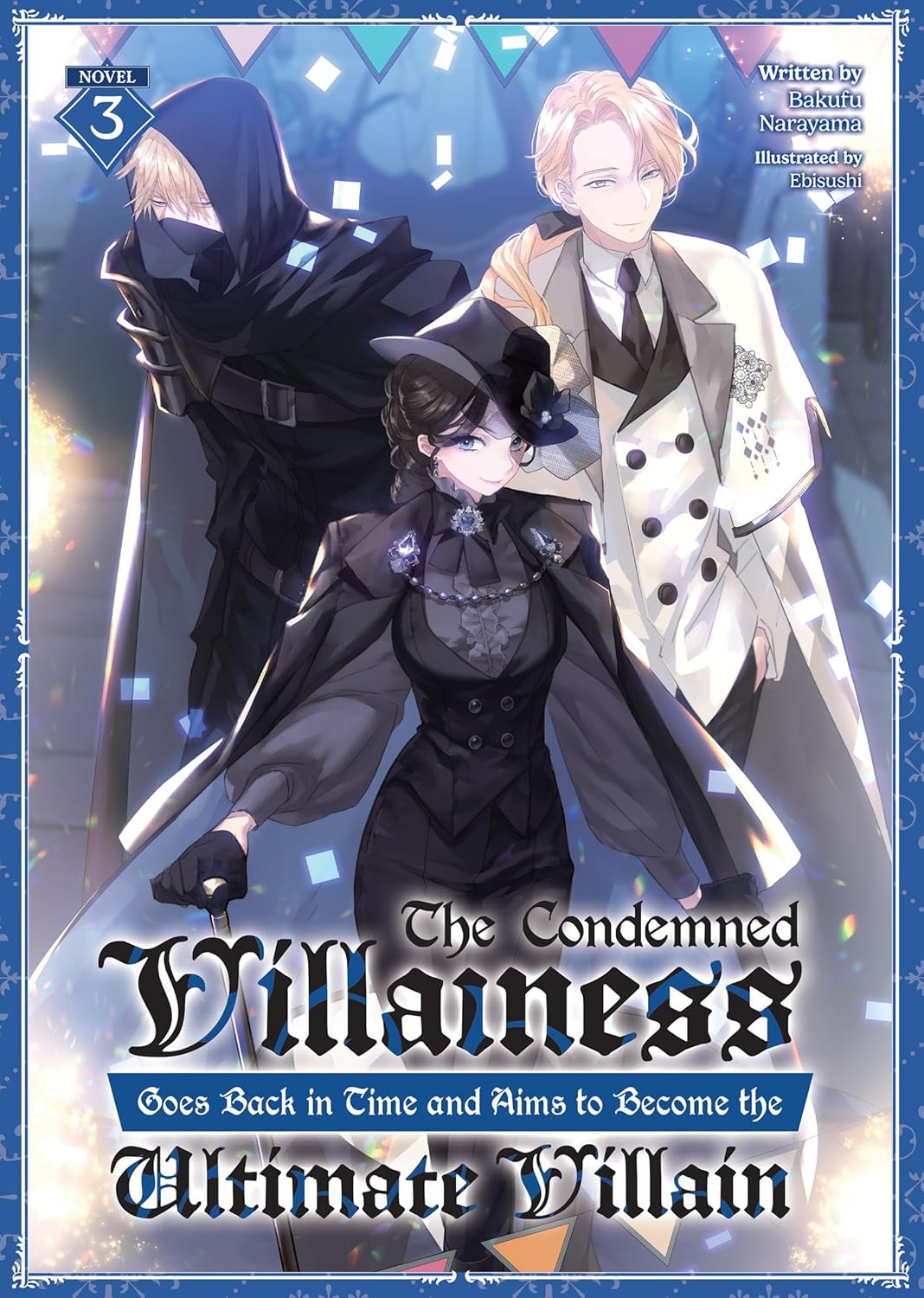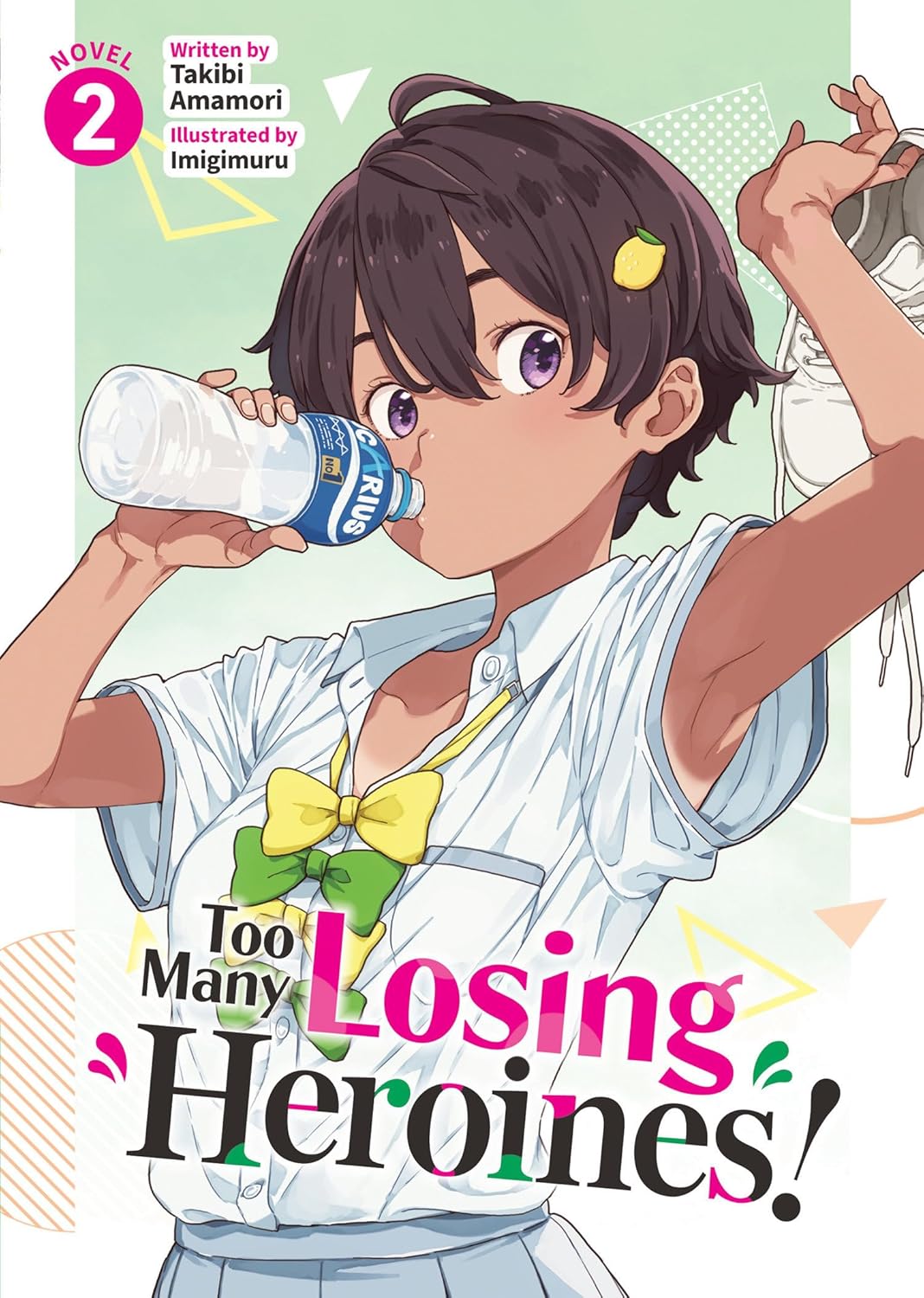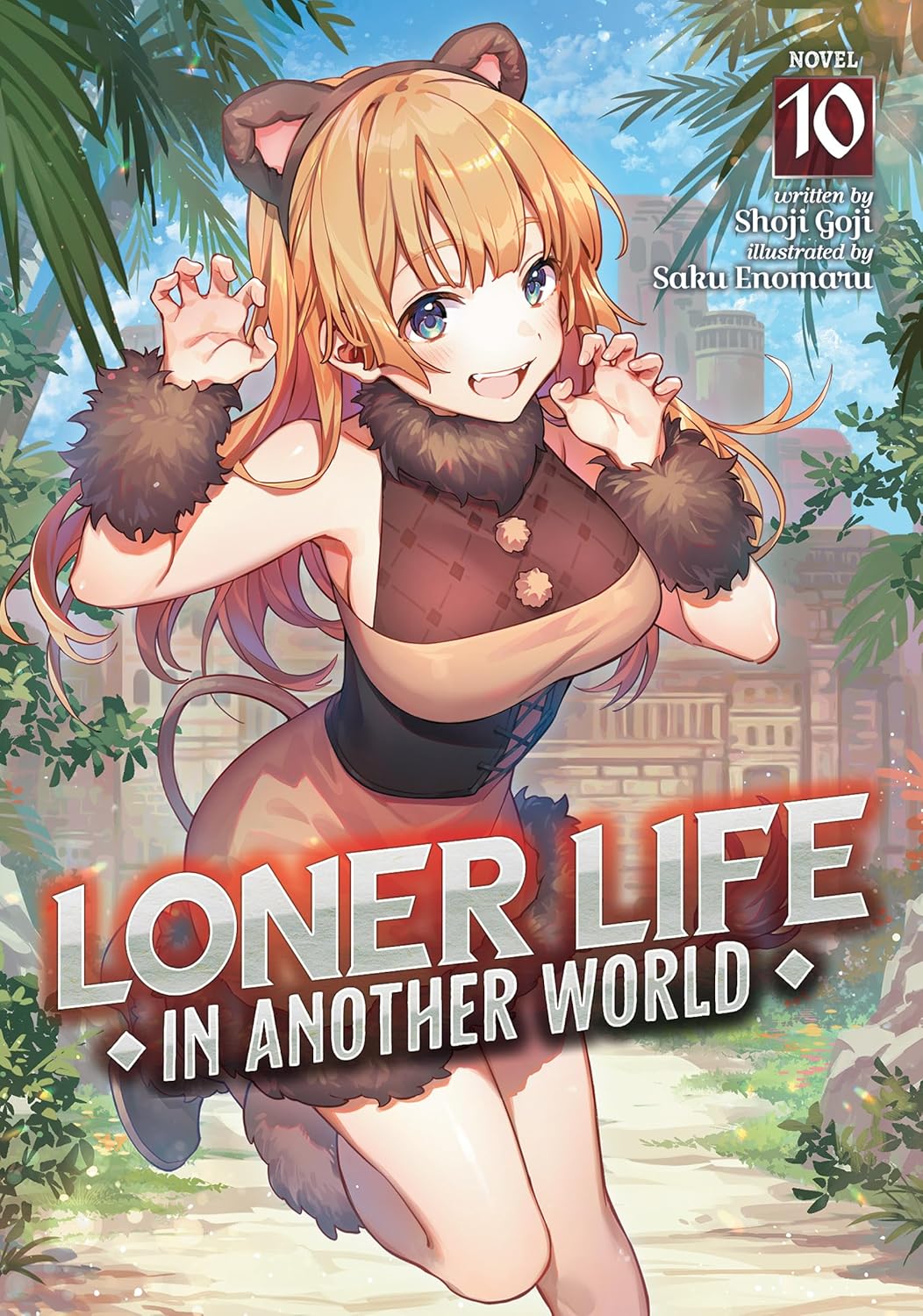By Bakufu Narayama and Ebisushi. Released in Japan as “Danzaisareta Akuyaku Reijō wa, Gyakkō-shite Kanpekina Akujo o Mezasu” by TO Books. Released in North America by Airship. Translated by Alyssa Niioka. Adapted by Vida Cruz-Borja.
The general premise of “heroine goes back in time to her earlier self” stories, which Japan calls Yarinaoshi Loop, is that our protagonist tries to change things in order to change the future and in the end ends up changing everyone else’s lives for the better as well. Sometimes this ends up being the entire kingdom, where we see her do things like unite various kingdoms and solve famine (looking at you, Mia). But occasionally our heroine has a narrower focus. Claudia, in her first lifetime, ended up being sold into a brothel, and had firsthand experience of what a wretched life it is, as well as how, for so many women, there may be no other choice. We’ve already seen her rescue Helen from that life in the first book, and in the second book disguise herself to invest in the brothel she used to work in. But she’s not done. Here we see she wants to make sex work legal. Light novels rarely venture into this area.
(As a side note, if your villainess does not look at least as hot as Claudia does in that suit and hat on the front cover, try harder.)
There’s another foreign prince arriving in town, this one from fantasy… Britain? Denmark? One of those. Prince Seraphim is there to visit Sylvester. They have a Church problem – Seraphim’s nation is not monotheistic, and therefore the church which rules over Sylvester’s nation, as well as most of the others, dislikes them and won’t trade with them at normal prices. Seraphim is looking for allies. Meanwhile, Claudia accidentally murmuring about business when she’s thinking about ways to save the sex workers means her father gifts her a business to run – actually, more accurately an entire shopping center. And wouldn’t you know it, it’s in Seraphim’s home country! Now they’re all traveling to try to do various things, the most important of which may be to stop the evil church guy that always pops up in Japanese light novels.
The most interesting part of this book, aside from its putting the plight of sex workers front and center, is the addition of the cardinal, Nigel. Towards the end of the volume, the book felt it was moving far too fast, and I briefly wondered if it was a two-parter. That’s not the case, but I get the feeling that the author realized as they were writing Nigel that he made a great antagonist for Claudia now that Fermina is out of the picture. Nigel fills a lot of villain tropes – besides being a churchman who loves luxury and will happily kill women and children to get minions to obey him, he’s also dreadfully bored and regards Claudia, an unexpected element, as a challenge. Clearly we’ll be seeing more of him.
This isn’t fantastic, but is on the high side of very good, and Claudia is a great lead character. I’m happy to read more.



